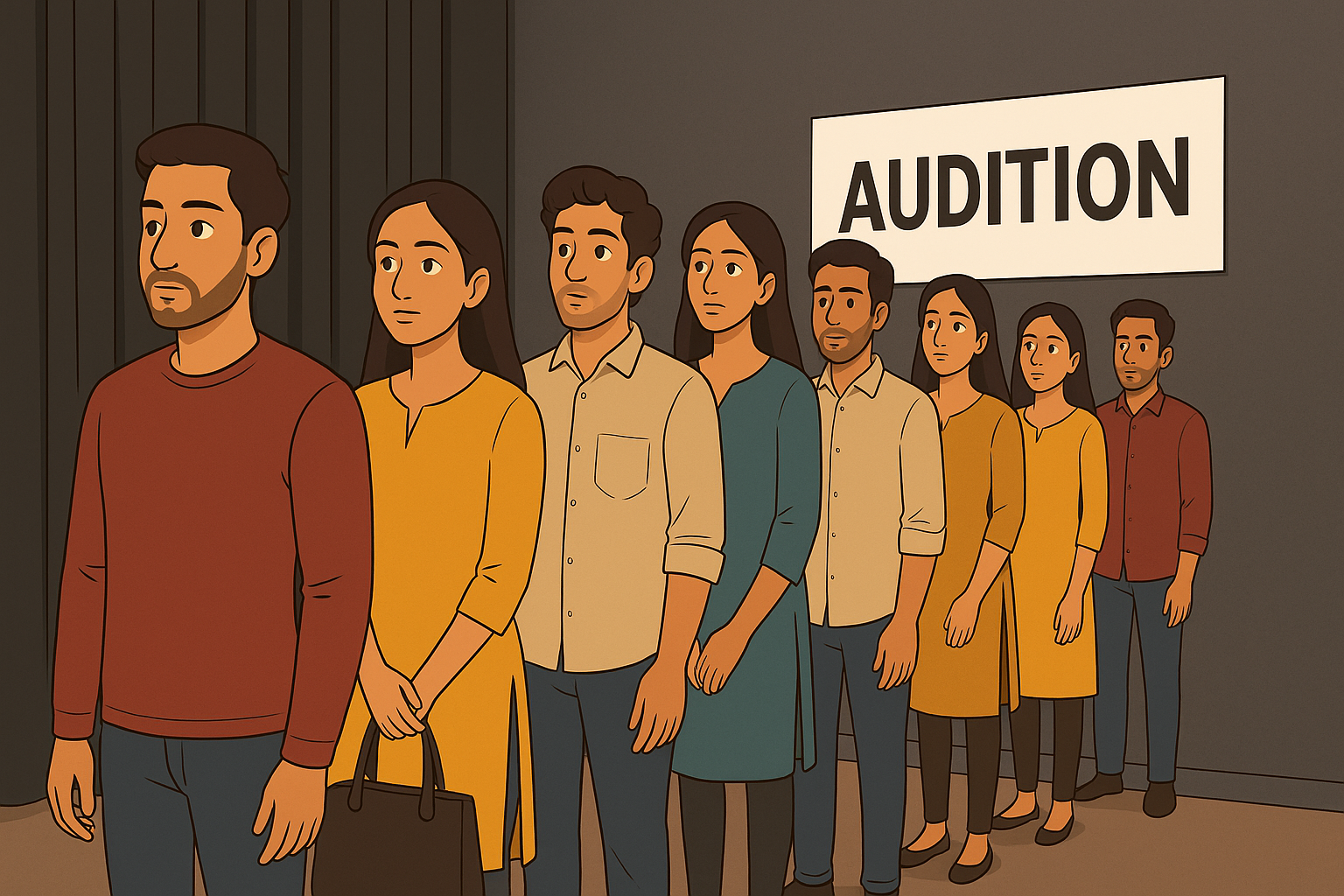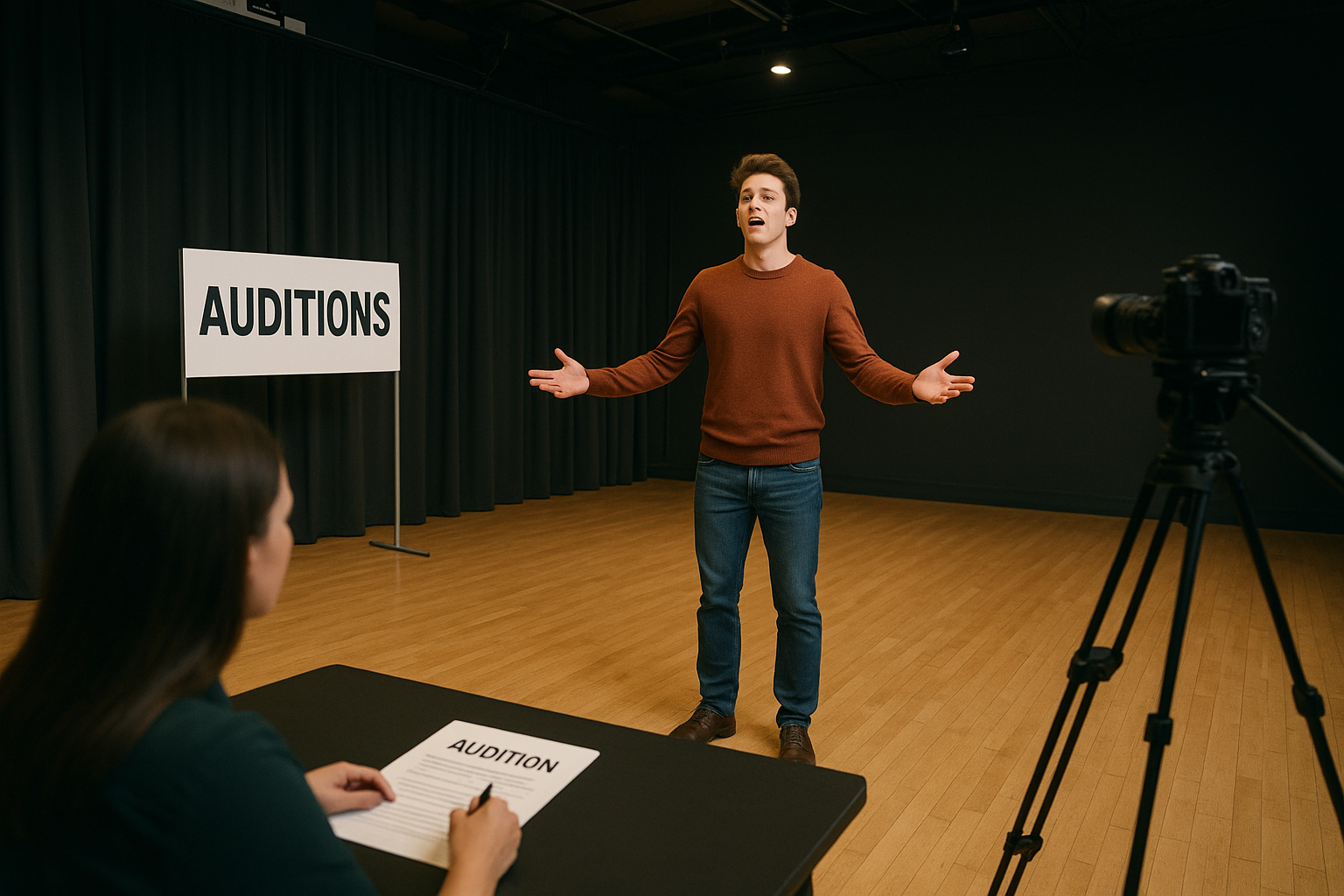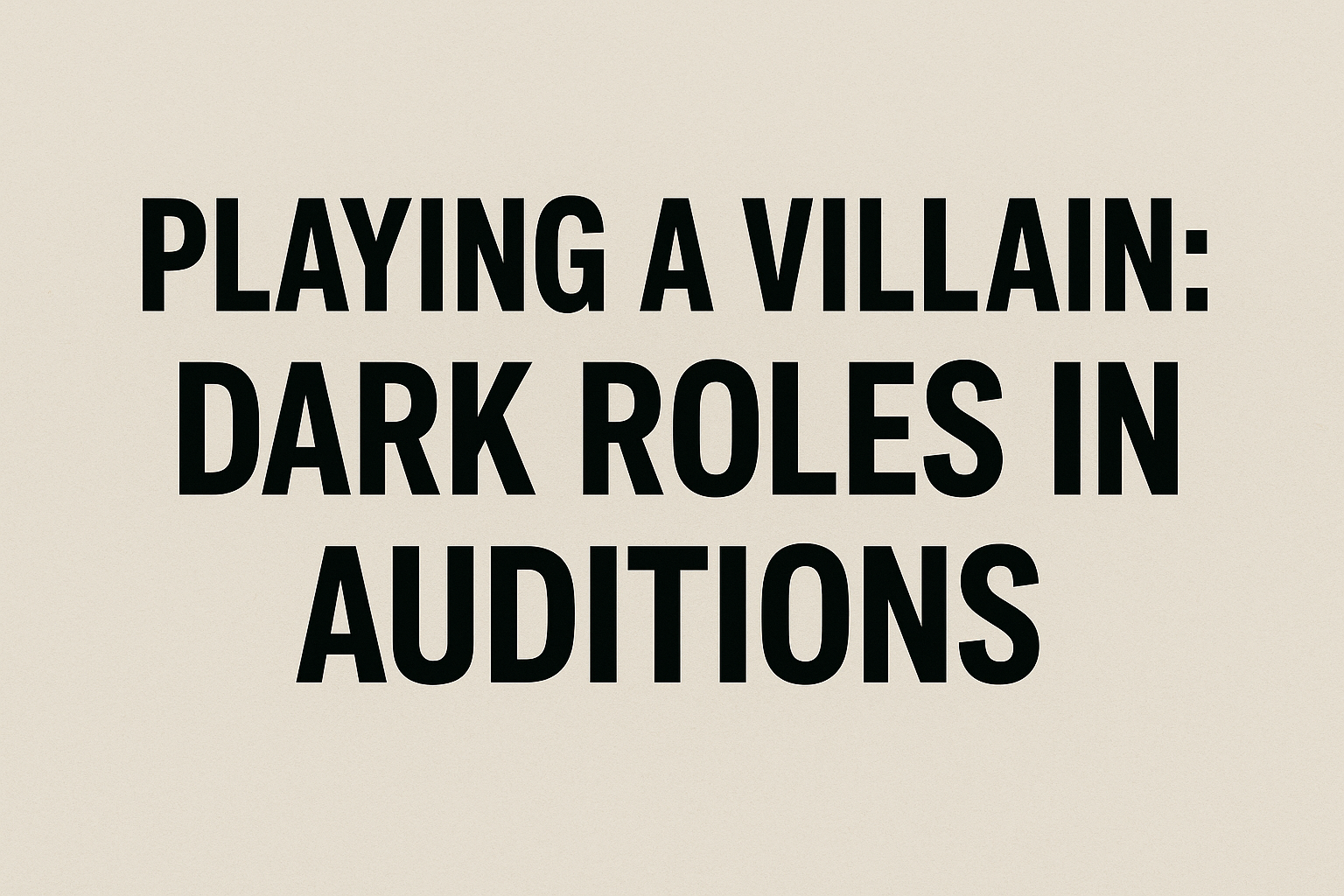
If you’re an aspiring actor in India, chances are you’ve already heard of “open auditions” — the kind where dozens, hundreds, or even thousands of actors show up for the same role. These are commonly known as cattle call auditions, a term borrowed from the West but very much relevant in the Indian entertainment industry.
No matter whether you are attempting to get into Bollywood, regional films, Hindi television serials, OTT such as Netflix India, or theatre — knowing cattle call auditions is necessary for getting through your journey.
What Is a Cattle Call Audition?
A cattle call audition is an open audition in which anyone can attend, with no constraints regarding background, experience, or training. No agent or casting manager is required to get in — you simply have to appear.
The phrase "cattle call" may sound a little cruel, but it does describe what happens: great mobs of actors being called in and audited one by one, frequently in a rapid and impersonal manner.
In India, such auditions are regular for:
TV serials (Hindi, regional)
Ad shoots and modeling work
Feature films (particularly for supporting or background work)
Web series on platforms like TVF, Amazon MiniTV, JioCinema, Netflix, and Sony LIV
Theatre performances and college drama festival
What to Expect at a Cattle Call Audition
1. Huge Crowds
Don't be shocked if 200–500 people are waiting with you — if it's a casting call for a commercial or a leading role in a daily soap.
2. Waiting for Hours
You could sign in at 9:00 AM and wait until 5:00 PM to audition. Sometimes, it gets so crowded that they have to turn people away because of the time.
3. Very Short Performance Time
Usually, you’ll get only 30 seconds to 1 minute to deliver your dialogue, introduce yourself, or act out a scene.
4. Basic Setup
Often, auditions are conducted in small rented studios with a camera and a casting assistant. No frills.
5. Limited Feedback
The casting team may not react at all. Sometimes they’ll say “okay, next” — don’t take it personally.
How to Prepare for a Cattle Call in India
✦ 1. Work on Your "Look"
Most Indian castings are "look-based" initially. Dress appropriately for the type of character — e.g., if the audition is for a college student, dress informally, not in formals or over-the-top attire.
✦ 2. Memorise a Short Hindi or Regional Monologue
Have some strong monologues rehearsed in Hindi, English, or your regional language (Marathi, Tamil, Bengali, etc.). TV serials tend to use high-emotion scenes.
✦ 3. Practice a Quick Self-Intro
You will usually be required to speak:
"Hi, my name is ___, age ___, height ___, location ___, languages known ___."
Practice it clearly in front of the camera.
✦ 4. Have Your Portfolio Handy
Bring printed headshots, brief bio-data or acting resume, and photos in Indian and Western outfits.
✦ 5. Be Cam-Ready
Keep your hair, grooming, and attire tidy. For females, light makeup; for males, clean beard (except character-specific).
Advantages of Cattle Call Auditions in India
Available to All: Excellent if you lack industry networks or an acting resume as yet.
Exposure: You become accustomed to acting before a camera or casting panel.
Practice: These auditions prepare you to deal with pressure and rejection.
Breakthrough Chances: Most TV artists, ad models, and even Bollywood personalities began from open auditions.
Disadvantages of Cattle Call Auditions in India
Extremely Crowded: You're one of the hundreds, so it's hard to stand out.
Unprofessional Arrangements: Certain auditions are poorly organized.
No Feedback Given: You might never know why you weren't picked.
Fatiguing: Physically and emotionally exhausting, particularly with several rejections.
How to Stand Out at a Cattle Call
Be Genuine: Don't overact or emulate stars. Be natural.
Begin with a Bang: Your initial 10 seconds are most crucial. Make them count.
Honor the Process: Remain courteous to coordinators, remain composed, and take instructions.
Smartly Follow Up: If they permit, leave your contact number or social media ID on your resume.
Are Cattle Calls Worth It
Yes — provided you tackle them intelligently. Cattle call auditions are a rite of passage for most actors. They may not always culminate in instant stardom, but they toughen you up, enhance your craft, and familiarize you with the industry's rhythm.
Thousands of currently well-known Indian actors — Rajkummar Rao to Radhika Apte — have discussed waiting in long lines of auditions, being rejected time and again, and yet turning up.
So if you notice a casting notice that fits your description — go for it. Be ready, remain humble, and do your best. You never know who is observing or when your time may arrive.
Acting may be an art, but in the world of professional performance, it begins long before the cameras roll or the stage lights shine. It begins with the audition — the often nerve-wracking, unpredictable process that determines whether an actor even gets the chance to perform. For aspiring actors, understanding the relationship between auditioning and acting is not just important — it's essential. One feeds into the other, and together, they shape an actor’s growth, resilience, and ultimate success.
When it comes to acting, playing a villain is considered a challenge and a golden chance. Villains are multilayered, multi-dimensional, and probably the most remembered characters in a narrative. Be it old Bollywood films such as Gabbar Singh from Sholay or OTT villains such as Guruji from Sacred Games, dark roles determine an actor's fate. But auditioning for a villain is an altogether different. It needs a firm grasp of psychology, body language, and emotional regulation. If you're a newbie or a seasoned actor wanting to master your craft, this blog will walk you through all that you need to know on how to audition for villainous roles.
In the high-stakes, emotionally demanding world of acting, rejection is frequent, uncertainty is constant, and comparison can feel unavoidable. The entertainment industry is as competitive as it gets—and in such an environment, your mindset can make or break your journey. While talent, networking, and luck all play their part, there's one internal tool that can drastically shift your trajectory: a growth mindset.
There is a moment every actor fears: the casting director places a script in your hands you've never laid eyes on before and says, "Take a minute, and when you're ready, we'll begin. Welcome to the cold read — perhaps the most unpredictable, yet vital portion of an actor's career. Whether you're auditioning for theater, television, or voiceover, cold reading is the skill that can break or make your chance at a role. But the good news is this: like every other craft, it can be practiced, honed, and eventually mastered. In this post, we will analyze what cold reading actually is, why it's important, and how you can transform a cold script into a warm, breathing performance.
Lights Camera Audition!
Don't miss out on the latest updates, audition calls, and exclusive tips to elevate your talent. Subscribe to our newsletter and stay inspired on your journey to success!







